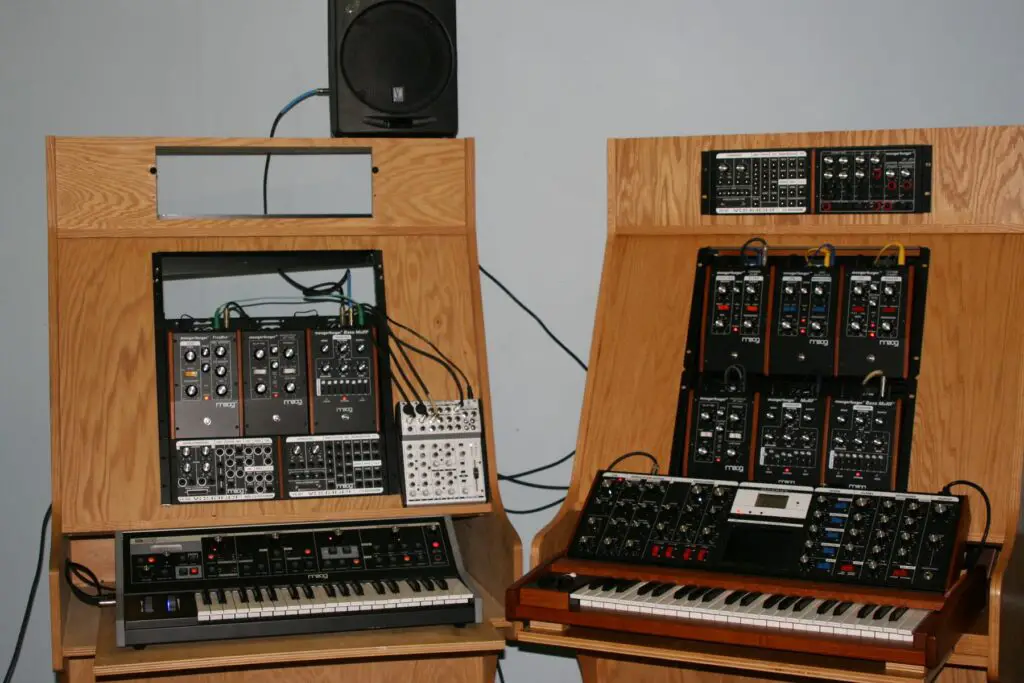Are you a music enthusiast who has always been fascinated by the art of music production? Do you dream of creating your own professional-quality tracks but don’t know where to start? Well, we have some exciting news for you! We have just launched a free course that will teach you the essentials of music production. Whether you’re an absolute beginner or a seasoned musician, this course is perfect for anyone looking to take their skills to the next level. So what are you waiting for? Sign up now and let’s explore the world of music production together!
Table of Contents
Introduction: Music Production and the Importance of Learning Essential Practices
Music production, the process of creating and refining music through recording, mixing, and mastering techniques, is a complex art form that requires knowledge of both technical skills and creative intuition. Whether you’re a budding musician looking to break into the industry or an experienced producer seeking to refine your craft even further, learning essential practices in music production is crucial for success.
By enrolling in a free online course for music production, you can gain access to valuable resources and expert instruction on everything from basic music theory principles to advanced mixing techniques using industry-standard tools. With hands-on experience working with digital audio workstations (DAWs) like Ableton Live or Logic Pro X, you’ll gain confidence in your ability to create professional-quality tracks that showcase your unique style as an artist.
So why wait? Sign up for a free course today and start exploring all the amazing possibilities that await you in the world of music production!
The Benefits of Enrolling in a Free Online Course for Music Production
Are you an aspiring music producer looking to take your skills to the next level? Enrolling in a free online course for music production may be just what you need. Not only can it save you money, but it also provides several other benefits that make it worth considering.
Firstly, a free online course allows you to learn at your own pace and on your own schedule. This means that even if you have a busy day job or family commitments, you can still fit learning into your routine. Additionally, many courses cover topics ranging from basic fundamentals to advanced techniques – perfect for both beginners and seasoned producers looking to hone their craft.
By taking part in a free online course, not only will you gain practical knowledge of essential software tools like Logic Pro X or Ableton Live; but also insights into broader concepts such as songwriting and arranging. These valuable lessons will help set yourself up for success in the ever-competitive world of music production.
Understanding the Fundamentals of Music Theory and Its Role in Production
Music theory is the foundation of music production. It’s essential to understand the basics of music theory to create harmonious and pleasing sounds. Learning about scales, chords, and keys can help you produce music that sounds good to the ear. Additionally, understanding music theory can help you communicate better with other musicians and producers.
In music production, music theory plays a crucial role in determining the key of a song, chord progressions, and melodies. Understanding these concepts will allow you to create more complex and interesting compositions. It’s also important to note that music theory is not just for classical or traditional genres; it applies to all types of music production, including electronic dance music (EDM), hip-hop, and pop. By mastering the fundamentals of music theory, you’ll be able to take your productions to the next level and create tracks that stand out from the rest.
Diving into Recording Techniques: Microphone Placement, Compression, EQing, etc.
Mastering Microphone Placement for Optimal Sound Quality
Mastering microphone placement is essential to achieving optimal sound quality in music production. Proper positioning of the microphone affects the tonality, balance, and stereo image of a recording. The distance between the microphone and source also plays a crucial role in capturing a clean signal and preventing unwanted noise or distortion. Experimenting with different microphone types like condenser, dynamic, or ribbon microphones can lead to unique tones based on their frequency response characteristics. Additionally, using proper compression techniques helps control inconsistent volume levels while equalization (EQ) allows one to shape frequencies for clarity or adding warmth. Understanding these concepts will help you produce professional-quality recordings that stand out among competitors in the industry!
Understanding Compression: Techniques for Achieving Professional Sound
Compression is one of the most crucial elements in music production, as it ensures a balanced and consistent sound. To achieve a professional sound quality, understanding compression techniques is essential. One method is to use compression during recording to smooth levels out before they become too dynamic. Another technique involves using multiple compressors in series or parallel to achieve different effects and textures. Sidechain compression can be used creatively for added impact in specific sections of a track. By mastering these key compression techniques, you’ll have greater control over your mix and enhance the overall quality of your final product – two essential skills any aspiring producer should possess!
The Art of Mixing: Blending Tracks to Create a Cohesive Sound
Mixing is a crucial step in music production where individual tracks are blended together to create a cohesive sound that represents the desired mood, emotion, and energy. Proper microphone placement during recording sets the foundation for an easier mixing process by ensuring each track has its own space and doesn’t clash with others. Compression helps control dynamics, while EQing allows for tonal shaping and frequency balance. It’s important to keep in mind that every element of a mix should serve its purpose without overpowering other elements. By using these techniques effectively, you can produce professional-sounding tracks that stand out from mediocre mixes.

Arrangements and Workflow Strategies that Make Allowing Creativity to Flow Easier
Streamlining Your Workflow: Tips for a More Efficient Music Production Process
In music production, workflow is key to allow the creative process to flow seamlessly. To streamline your process, start by organizing your files and naming conventions in a way that makes sense to you. This will save time when searching for specific sounds or tracks later on. Additionally, consider creating templates for frequently used instruments or effects chains to speed up your initial setup.
Another great tip is utilizing hotkeys and shortcuts within your DAW software to increase efficiency and reduce mouse clicks. Don’t be afraid to experiment with new techniques or workflows as well! It’s important not to get stuck in a rut and be willing try different approaches until you find what works best for you. By implementing these strategies, you’ll be able to focus more on the music itself rather than technical barriers that hinder creativity – ultimately making better productions!
Arranging Your Tracks: Techniques for Creating a Cohesive Sound
To create a professional-sounding track, it’s important to arrange your elements in a way that makes sense musically and sonically. One key technique is to establish a clear structure for your song, using repetition and variation to create interest and momentum. Another important aspect is to ensure that each element has its own space in the mix, avoiding clutter and muddiness. This can be achieved through careful EQing and panning. Additionally, using automation to add movement and dynamics can bring your arrangement to life. By implementing these techniques, you can create a cohesive sound that showcases your creativity and musicality.
The Importance of Collaboration in Music Production: Working with Others to Enhance Creativity
Effective arrangements and workflow strategies in music production can make all the difference when it comes to allowing creativity to flow smoothly. One significant aspect of this is collaboration with others, which can bring fresh ideas, new perspectives and techniques that you may not have considered before. Working with others who share your passion for music production ensures that you are always learning from one another, keeping up-to-date with trends and honing your skills through constructive criticism. It also opens doors to opportunities such as networking or even finding new artists to work with. In summary, collaboration is an essential component of any successful music producer’s toolkit.
Staying Inspired: Strategies for Overcoming Creative Blocks in Music Production
One of the biggest challenges in music production is finding ways to stay inspired and continue creating. Whether you’re facing a creative block or just feeling unmotivated, there are strategies that can help. Experimentation is key – try new instruments, sounds, or techniques to explore different possibilities. It’s also important to stay organized and break down big projects into smaller tasks to avoid overwhelm. Don’t be afraid to take breaks when needed and come back with fresh ears. And finally, surround yourself with like-minded individuals who can offer support and feedback throughout the process. By implementing these strategies, you’ll find it easier to allow creativity flow effortlessly in your music production journey.
Mixing Techniques for Professional Sounding Tracks
Mixing Techniques for Professional Sounding Tracks
Mixing is the process of blending all the individual tracks of a song into a cohesive and balanced final mix. It involves adjusting levels, panning, EQing, compression, and adding effects to enhance the overall sound. One important key phrase to keep in mind during mixing is “balance.” Each element of the track should be heard clearly without overpowering others.
Another crucial aspect of mixing is creating depth and space in the mix. This can be achieved through panning, reverb, and delay effects. Using these effects strategically can make a huge difference in the overall sound of your mix. It’s also important to listen to your mix on different speakers and headphones to ensure it translates well across different systems.
Additionally, referencing other professionally mixed tracks can give you an idea of what a well-balanced mix should sound like. Don’t be afraid to experiment and try new things during the mixing process. With practice and patience, you’ll be able to create professional sounding mixes that stand out from the crowd.

Mastering Your Final Mixes like a Pro using Industry Standard Tools
Once you are done mixing your tracks, it’s time to master them. This is where you put the final touches on your mix and make sure that it sounds amazing across all speaker systems. Mastering can be a tricky process if you don’t know what you’re doing but with this free course, we have got you covered.
In our mastering section, we will go over all of the elements necessary for producing great-sounding songs. You’ll learn about industry-standard tools, including EQs, compressors, and limiters so that your music stands out in today’s crowded market.
We also discuss how to create an optimized signal chain by using effects like reverb and delay to give depth to your track while keeping noise levels low.
Mastering is often overlooked by young producers who focus solely on mixing their songs well. Don’t make this mistake; take advantage of our comprehensive guide to ensure your music plays at its best no matter where it’s played or heard!
Conclusion: Utilizing Your Newfound Knowledge to Take Your Musical Career to the Next Level
Utilizing Your Newfound Knowledge to Take Your Musical Career to the Next Level
Congratulations! You have completed the free course on music production and have gained a wealth of knowledge that will help you take your musical career to the next level. Now it’s time to put that knowledge into practice.
One important key phrase to remember is consistency is key. Keep practicing and honing your skills. Experiment with different techniques and workflows until you find what works best for you. Don’t be afraid to make mistakes, as they can often lead to new discoveries.
Another important key phrase is networking is crucial. Attend music events, connect with other producers and musicians, and collaborate on projects. Building relationships in the industry can open up new opportunities and help you grow as an artist.
Remember, success in music production takes time and dedication. But with the essential practices you’ve learned in this course, combined with hard work and perseverance, you can achieve your goals and create amazing music that resonates with audiences around the world.
In conclusion, learning the essentials of music production is crucial for anyone looking to make a career in the music industry. With the availability of free online courses, there’s no excuse not to take advantage of this opportunity to improve your skills and knowledge. By understanding music theory, recording techniques, arrangements, mixing, and mastering, you’ll be able to create professional-sounding tracks that stand out from the crowd. So what are you waiting for? Enroll in a free course today and start your journey towards becoming a successful music producer. And don’t forget to check out our other content for more tips and tricks on music production!


